18 Types of Bermuda Grass for the Most Refined Lawns
Author: Chris Miller | Editor: Omar Alonso
Review & Research: Jen Worst & Chris Miller
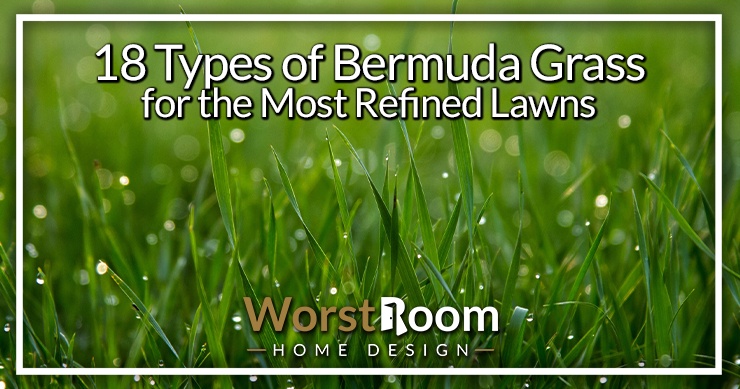
If you're looking for a way to adorn your front yard and lawn, growing grass on your property is obviously a must. And we all can agree to the fact that any types of Bermuda grass are the best choices for warm and dry locations. You can grow it in places where no other grass survives.
Among all the warm-season grasses, Bermuda grass shows the fastest growth rate. All the Bermuda grass varieties are appreciated due to their heat and drought resistance, resilience, and aesthetics. The grass can even grow in saline soil and heavy traffic areas.
However, there are many varieties of Bermuda grass, and it can be a daunting task to pick one based on the weather, soil condition, and maintenance needs. Here we will discuss different kinds of Bermuda grass and their characteristics so that you can decide on your ultimate pick.
18 Types of Bermuda Grass
Bermuda grass belongs to the genus Cynodon, and it grows naturally in warm areas all around the world. There are more than 50 species the grass, and more cultivars are being developed in labs.
Bermuda grasses fall into three categories: Common Bermuda, Improved Common Bermuda, and Hybrid Bermuda. Below we have narrowed down all the important varieties of Bermuda grass under these three categories. Let’s have a look.
Common Bermuda Grass
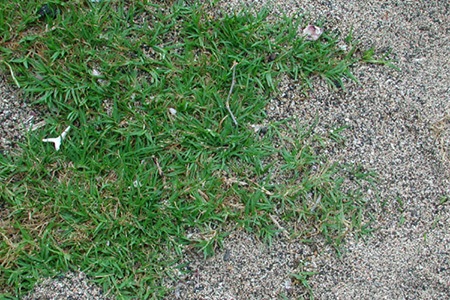
Also known as seeded Bermuda grass, you can grow this type of grass easily through seeds. As the grass has longer stems and wider leaves, it is typically grown on the side of a busy road. Usually, common grasses grow faster than other types and display better resistance to drought and extreme heat.
However, it's not a preferred option for growing on your lawn as the appearance of this type of grass isn't very appealing. The coarse leaves, pale green color, and vigorous growth make it rather undesirable. You can grow these grasses in a location where you want greenery without any aesthetics.
Compared to other grasses, this type has a higher nutritional value. So, you can use them as livestock feed. Also, common grasses are pretty cheap to grow and require no maintenance. Hence, they are great for growing on your kid's playgrounds.
Here are some seeded varieties of Bermuda grass for you to peruse.
Improved Common Bermuda Grass Varieties
In comparison to common Bermuda, the improved varieties are much more preferable to lawn owners. The grasses of these different types of Bermuda grass have a darker and attractive green color and fine or medium-fine texture.
Also, the roots of these grasses go deeper into the ground, which helps them survive with minimum water, which will give you time to get the right types of sprinkler heads installed for your new lawn.
Instead of sods, you can grow the improved common grass from seeds, and so, it's a cost-effective option to cover large areas. Like the previous variety, this one also has a high growth rate, and the grasses appear dense to give a fuller, carpet-like look.
You can opt for this variety to give your lawn and yard a thick, green decoration at a low cost.
Keep in mind that the grass doesn't show much tolerance to cold. So, if you live in a place where frost is a common occurrence, the improved varieties aren't the best option for you.
Here are some remarkable types of improved Bermuda grass.
Princess 77 Bermuda Grass
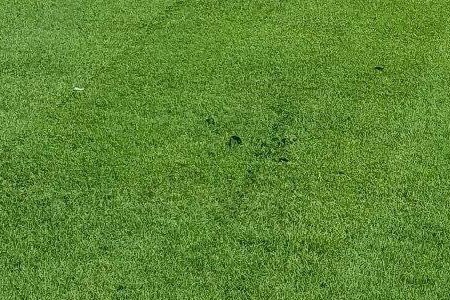
Despite being a newer variety, Princess 77 has gained popularity because of its high quality. It is believed that the name 'Princess' was given because of the delicate nature of its leaves.
The grass has excellent texture and deep green color. Also, it grows pretty dense and shows impressive tolerance to drought and high temperatures.
Hence, this type of grass is suitable for both high and low traffic areas. You can easily grow them in any type of soil as they require less water. Moreover, the plant height of this variety is reduced so that you don't have to concern yourself about maintenance.
As the grass prefers warm seasons, you can expect them to start growing from April to October. The Princess 77 Bermuda grass species is a popular choice for golf courses, parks, stadiums, lawns, and cemeteries.
Yukon Bermuda Grass (OKS91 - 11)
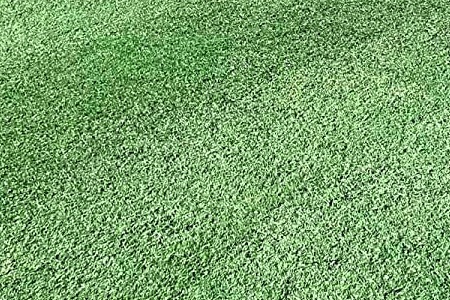
From improving the cold-hardiness of the common Bermuda grass, researchers of Oklahoma State University developed the variety 'Yukon' as well as many others over the decades. This highly ranked variety is a favorite of golf managers because of its fine texture and tolerance towards heat and cold.
The grass blades of this variety are thin, with a rich green color that becomes even deeper towards the tip. It makes the turf look denser and more attractive. Hence, you can grow the grass on your gardens, lawns, roadsides, parks, and playgrounds.
Although the Yukon types of Bermuda grass prefer well-drained soil, you can grow it in almost any soil type. If you live in a colder region, Yukon can be the cheap and low-maintenance grass you have been looking for.
Blackjack Bermuda Grass
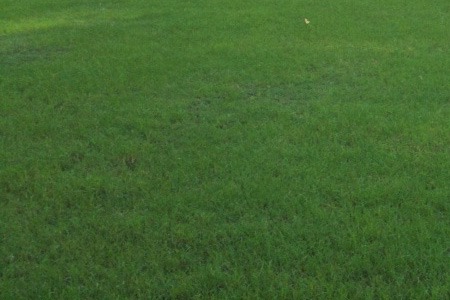
Another incredible choice for golf tees and fairways, the Blackjack variety is prized for its deepest green shade. The grass blades are very thick and sturdy, which makes them suitable for high traffic areas like roadsides and sports fields.
The grass will provide dense coverage to a large area and maintain its rich color throughout the summer. Impressively enough, it can tolerate even colder months. While most Bermuda grass varieties require full sun to grow up, the Blackjack grass can thrive perfectly well in partially or fully shady areas.
For growing the grass in your home lawn, use nitrogen fertilizer and spread the seeds in moist soil to improve the germination rate.
Jackpot Bermuda Grass
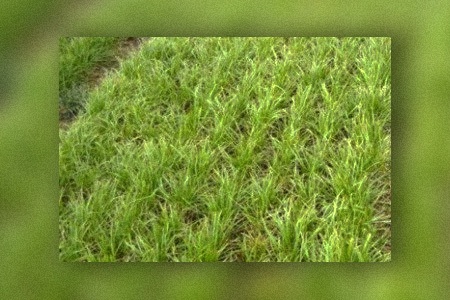
Jackpot is a prized Bermuda for sporting fields, mainly baseball diamonds, due to its density. Not only does it grow tightly packed but it has above average leaf thickness as well. When maintained and cut, it has an attractive visual appearance.
That is, unless you end up getting Georgian Jackpot Bermuda grass which grows into lack-luster olive color that many can find dull and unappealing.
Yuma Bermuda Grass
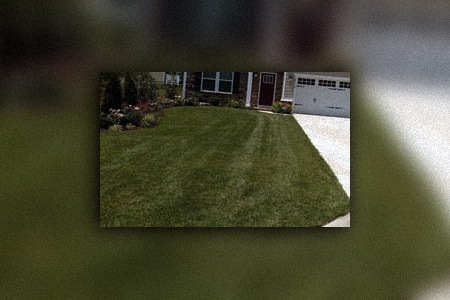
This seeded Bermuda grass is technically a forage glass for animals, but its qualities make it popular for golf courses. One of those qualities is the intense green hues when it reaches full maturity.
Other qualities include the fact that Yuma types of Bermuda grass doesn't need constant watering, can handle full sun exposure, and doesn't grow so rapidly that it needs constant mowing. You can find this Bermuda Grass variety in seed or sod forms.
La Paloma Bermuda Grass

Among all the seeded varieties, La Paloma is considered particularly unique because of its short plant height. This makes for a low-maintenance variety that is cost-effective and easily attainable. Apart from the height, this type is also known for its high growth rate.
You can grow La Paloma grasses if you want to cover an area quickly, even before the arrival of summer. The leaves of the grass are dark green and thin with a tapering end. It sends the roots deep inside the ground to survive low water conditions and even high conditions where you may need french drain alternatives.
Unlike many other varieties, the La Paloma species of Bermuda grass exhibits better growth in low light conditions. Hence, it's a good choice for residential lawns and golf courses.
Hybrid Bermuda Grass Species
Hybrid varieties were developed by cross-breeding various types of common and improved Bermuda grasses. Hence, this type of grass has better looks and qualities compared to the other ones. This also makes the hybrid varieties costlier and eligible for only vegetative planting.
Here are some of the finest quality hybrid Bermuda grass.
La Prima Bermuda Grass
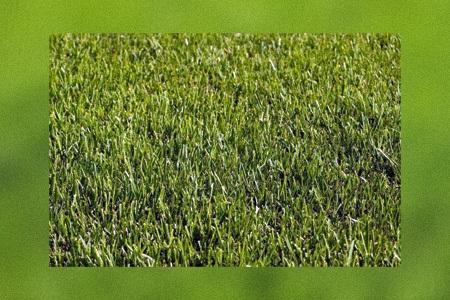
La Prima is a hybrid between the above La Paloma and Sahara turf grasses. It's popular because it doesn't grow extremely fast and is easy to manage. But know that it's relatively expensive.
La Prima boasts great disease resistance, above average weather tolerance, and has a finer leaf texture and thickness. All of this makes it an attractive option for newcomers to lawn maintenance.
Sahara Bermuda Grass

Sahara is perfect for those that live in hotter regions that would otherwise burn your sensitive types of Bermuda grass. Sahara Bermuda grass can tolerate the heat and humidity and even with kids running across it all day it'll maintain its attractive green hues.
It's relatively inexpensive as well, not only in regards to its seed costs but the lack of fertilization and water it'll desire over time. It's a great choice, but admittedly not the most attractive option.
Tiflawn Bermuda Grass
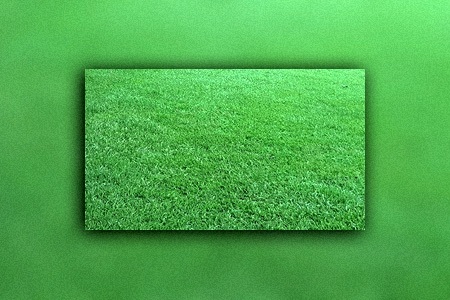
Developed especially for residential lawns, Tiflawn grass (originally called Tifton 57) has been popular in the United States since its invention in 1952. The grass has a medium green hue and a vigorous rate of growth. Due to its medium-fine texture, it's a good way to create the delusion of dense turf.
As the height of the plants is moderate to low, it's easy to upkeep the grass for novice gardeners. Besides having an excellent drought tolerance, the grass has recuperating abilities.
This means the grass will go dormant during the winter season and grow back as soon as summer arrives. All these qualities make this variety perfect for front yards, gardens, and sports fields.
Ormond Bermuda Grass
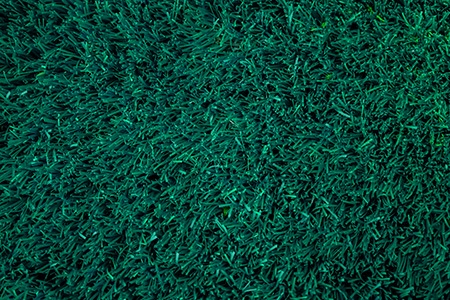
You can easily distinguish this type from any other Bermuda grass by its long, exceptionally thin leaves and bluish-green color that looks gorgeous in daylight. The grass doesn't grow as densely as its other counterparts, and it also has less tolerance towards drought.
Yet, it has an excellent ability to resist numerous common leaf diseases that completely ruin the beauty of your landscape. You can grow the Ormond grass with other hybrids for the best results. Usually, this type of grass is seen in cricket fields and golf tees.
Triangle Blend Bermuda Grass
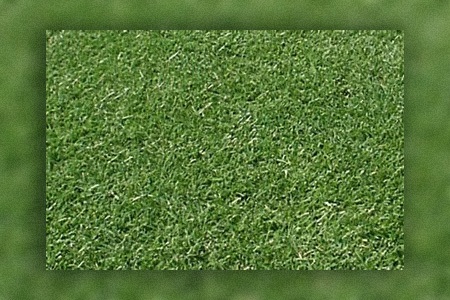
Triangle Blend Bermuda grass has a lot of benefits to. The first and foremost is its cold-tolerance and drought-tolerance. These types of Bermuda grass can handle the winter and the periods when it doesn't rain as much with ease.
The width of the grass blades falls between a thin to a medium size, which feels and looks refined, especially with the colorful luster it maintains. This grass blade size means you can make progress with any standard types of rakes, too, in the autumn. But know that it grows pretty fast so expect to be mowing it when it reaches an inch to two inches in height.
Tifway 419 Bermuda Grass
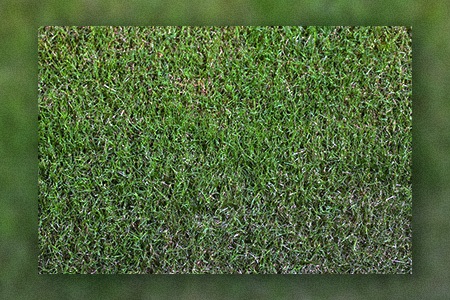
When it comes to picking a variety for making high-quality sports turf, the best spot goes to Tifway 419. Deep green grass blades with a thick and fine texture make the grass elegant and useful at the same time.
The grass shows outstanding resilience to pests, diseases, and weeds, and even more so with quick acting weed and feed. Hence, it's a great option to beautify commercial landscapes.
Another important fact is that the plant is a vigorous grower, and it quickly recovers from injuries to fill up the blank spaces in no time. the grass shows moderate resistance to drought and shade. You can grow it in almost any soil type.
Alternatives to the Tifway 419 include the "improved":
- TifSport Bermuda - Has to be planted through vegetative propagation as it doesn't produce seeds. It's cold-tolerant and grows densely.
- Tifway II Bermuda - An even denser variation, said to be even more winter-hardy, handling frost and even nematodes better.
- TifGrand Bermuda - Has great disease resistance and keeps a greener appearance through worse conditions. It's also shade tolerant.
If you're working on a home lawn and not a golf course, the regular Tifway 419 is preferable.
Oasis Blend Bermuda Grass
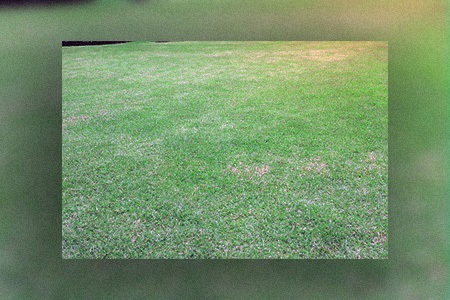
Being a cross of three different varieties of Bermuda grass, the Oasis Blend grass has excellent adoption abilities and significant genetic diversity. The grass has moderately thick, stunning light green leaves that look majestic even in heavy traffic areas.
Oasis blend types of Bermuda grass grows in any soil type and shows good tolerance to cold and drought. It has a high growth rate, and it invades earlier than many other varieties.
You can grow the plant in your children's playgrounds as the thick carpet-like layer of the grass will reduce the shock effects if they fall accidentally. Oasis Blend grass is used in cemeteries, public parks, golf fairways, and many other public recreational places.
Mohawk Bermuda Grass
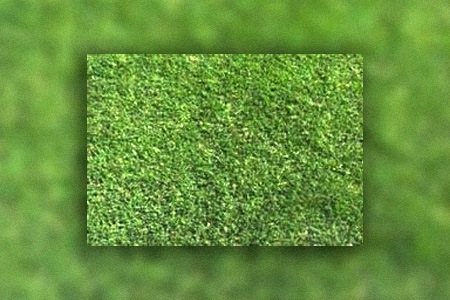
A successful grass for northerners, this Bermuda can tolerate extremely harsh winters better than most. But what you should know is that it goes dormant during winter, meaning it'll stop growing and even lose some of its color.
If that's okay for you as a trade off, give Mohawk a chance. It was developed in Mohawk Valley, Arizona to thrive in soil that has been depleted of much of its salt. Low salinity is a problem for many different types of Bermuda grass, but not Mohawk.
Other Bermuda Grass Types
Some people aren't looking at Bermuda grass for its properties as a well-maintained lawn, but are more interested in using it for hay production. Below are three perennial forage Berumda grass varieties for that purpose, each with different strengths.
Tifton 85 Bermuda Grass
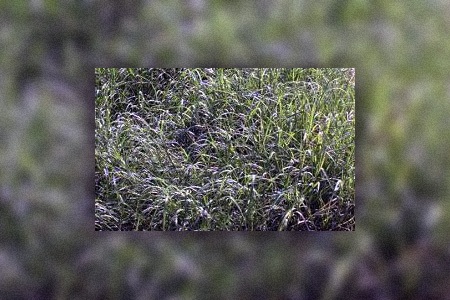
A South African variety, this Bermuda grass cultivar has the benefit of being highly digestible for livestock. It's predecessor, the Tifton 68 wasn't very tolerant to the cold weather, which the 85 version has improved greatly.
Coastal Bermuda Grass
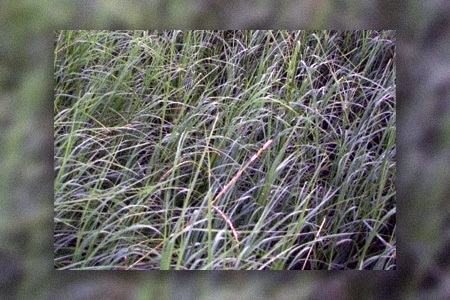
Another hybrid Bermuda grass species, this one is a huge success. It's said that over 15 million acres of pasture in the USA are covered with Coastal Bermuda grass. Thanks to its rapid growth and the fact that it springs up so high, it yields twice the amount of hay.
Russell Bermuda Grass
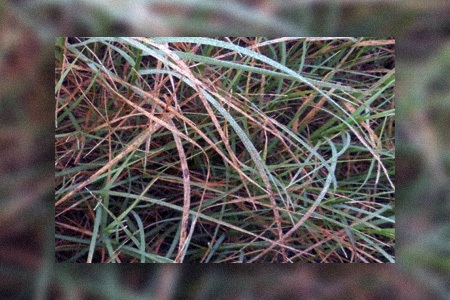
Russell is a popular choice for hay production due to being winter-hardy. The yield is similar to Tifton 85, as is the cold tolerance, but the difference is that Russel grows more dense and less tall. It ends up equaling out, but if you propagate through sprigging, you can establish and grow it faster.
Types of Bermuda Grass for Any Lawn Environment
We recommend you go for the hybrid varieties of Bermuda grass as they have a widespread adaptation spectrum and numerous significant qualities. So, choose wisely to get a satisfactory result.
Now you know the most common types of Bermuda grass and their unique characteristics. If you want to beautify your landscape with greenery, Bermuda grass can be the shortest and most effective route to do it.



